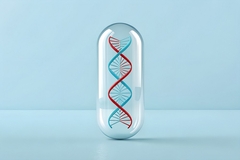DSM snaps up Erber for US$1bn as it prioritizes acquisitions

12 Jun 2020 --- Royal DSM is prioritizing mergers and acquisitions following the potential economic fallout stemming from COVID-19. The company has canceled the remainder of its €1 billion (US$1.1 billion) share buy-back following the acquisition of Austria-based Erber Group, which has an enterprise value of €980 million (US$1.1 billion). Erber specializes in gut health performance management, mycotoxin risk management, and food and feed safety diagnostic solutions. This move significantly expands DSM’s health specialty and animal nutrition offerings.
“The acquisition of Erber is a unique strategic opportunity that provides revenue-enhancing synergies from our combined offering, joint global customer base and our complementary geographic strengths. Biomin and Romer Labs will help strengthen and accelerate the growth of our specialty animal nutrition and health offering, including our big data and diagnostic capabilities. It is exciting to be entrusted to take these family-founded businesses forward as it was immediately clear to us that the people at Erber share our purpose-led mission,” Lieke de Jong-Tops, Senior Communications Manager at DSM, tells NutritionInsight.
The transaction’s enterprise value represents an EV/EBITDA multiple of about 14 times the 2020 EBITDA (fiscal year ending September 2020). The transaction is expected to be earnings enhancing in the first year upon completion.
Erber has state-of-the-art research and manufacturing facilities and approximately 1,200 employees around the world. DSM also states that Erber’s human diagnostic services are synergetic with DSM’s precision nutrition developments in its existing activities in human nutrition and health. Additionally, it anticipates cross-selling, R&D and cost synergies after integration.
The move also allows DSM to enter the mycotoxin risk management market. Mycotoxins are the result of natural fungus contaminants in animal feed and threaten the health of both animals and humans.
One of Erber’s businesses is Romer Labs, which complements DSM’s human nutrition and health offerings to food industry customers. The business – accounting for 15 percent of sales – is touted as being at the forefront of diagnostic technology with innovative testing solutions for the analysis of mycotoxins in feed and food, food allergens and pathogens, as well as veterinary drug residues. It also boasts accredited full-service labs in Austria, the UK, the US and Singapore.
“Our extensive global network of food and beverage customers, as well as animal feed customers, stand to benefit from Romer Labs’ expertise and the combined group’s data-based quality assurance offering. It is very much complementing our human nutrition and health offering to food industry customers,” says De Jong-Tops.
Accounting for 85 percent of sales, Biomin uses proprietary technology to protect against mycotoxins. Biomin is also a major producer of phytogenic and probiotic feed alternatives to antibiotics, which complements and strengthens DSM’s position in the rapidly growing global eubiotics market for improving animal gut health. Sanphar and EFB, businesses representing 7 percent of Erber’s total sales, are not included in this transaction.
 Erber’s human diagnostic services are synergetic with DSM’s precision nutrition developments.Financial details
Erber’s human diagnostic services are synergetic with DSM’s precision nutrition developments.Financial details
Subject to customary conditions, the transaction is expected to close in Q4 of 2020. The acquired businesses have combined sales of €330 million (US$374 million) and an adjusted EBITDA margin above 20 percent for the 12 months to the end of March 2020, with a high single-digit organic sales growth rate over the past five years. The acquisition will be debt-financed, with committed bridge financing in place.
This deal, along with the COVID-19 pandemic, also influenced DSM’s decision to cancel the remainder of its €1 billion (US$1.1 billion) share buy-back. The program, which intended to reduce DSM’s issued share capital, was first announced in February last year. Under this program, DSM repurchased around 6.6 million shares for a total consideration of €745 million (US$844 million) in 2019 and 2020.
“Share buy-backs are the last in our longstanding capital allocation priorities and we prefer to spend our capital on value-enhancing mergers and acquisitions now that the opportunity is there. This is while remaining prudent in this economic environment,” explains De Jong-Tops.
DSM has been on something of an acquisition trail of late, having purchased human milk oligosaccharide supplier Glycom for €765 million (US$826 million) in April. Last November, the company also acquired US-based digital health platform AVA, which provides artificial intelligence (AI)-powered nutritional coaching and recommendations across a wide range of health and wellness segments. Meanwhile, its investment arm was a cornerstone investor in a €10 million (US$10.8 million) funding round for Oxford-based life science company Phynova last month.
By Katherine Durrell












